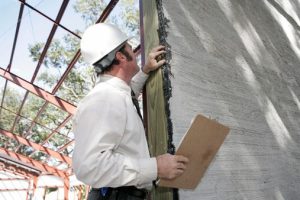Generally speaking, a building inspector is an individual who is certified in one or more disciplines. They are hired by a county, city, or township to perform a building inspection. During the building inspection, a building inspector is supposed to make a professional judgment about whether or not a building complies with the code.
The inspector examines several items, including electrical systems, during a home inspection. A plumbing inspection can catch leaks, broken pipes, and other minor issues. This is especially true if you’re buying or selling a home.
Mechanical
 During a mechanical building inspection, inspectors must verify that mechanical systems are installed according to codes and building plans. They also ensure that the system is safe and functional. In addition, they evaluate a variety of assets, including boilers, fire dampers, elevators, and pumps.
During a mechanical building inspection, inspectors must verify that mechanical systems are installed according to codes and building plans. They also ensure that the system is safe and functional. In addition, they evaluate a variety of assets, including boilers, fire dampers, elevators, and pumps.
Construction companies, government agencies, or safety agencies generally employ mechanical inspectors. In addition to performing inspections, they also write reports and train others.
The average salary for a mechanical inspector varies greatly, depending on region, company, and seniority. However, the median mechanical inspector salary is $50,897 in the U.S. and $71,210 in Canada. The salary range for a senior mechanical inspector is $124,811 in the U.S. and $139,975 in Canada.
Mechanical inspectors are required to undergo training and take an exam. They also must demonstrate leadership and professionalism. This is important to employers, as they want to see that the applicant is genuinely interested in the job.
A mechanical inspector must review building, plumbing, and mechanical plans. They also have to check the quality of materials and ensure that codes perform the work.
Mechanical inspectors also check the quality of HVAC systems. They ensure that they operate properly and that the building has good airflow. They also inspect smoke and fire dampers, emergency exhaust systems, and product-conveying ventilation systems.
Plumbing
Whether buying or selling a home, it’s a good idea to have a plumbing inspection. Not only is it important to know what you’re getting into, but it’s also a good way to catch small issues before they grow into larger problems.
A plumbing inspection aims to ensure that your new system meets all the code requirements. This is often performed by a licensed plumber who has completed additional training. You’ll also want to check that your water supply is in good working order. Typically, a water supply inspector will check the number of fixtures on each level of your home, as well as the materials of the fixtures.
A plumbing inspection can catch leaks, broken pipes, and other minor issues. This is especially true if you’re buying or selling a home.
Using a plumber for a plumbing inspection can save you time and money in the long run. They can coordinate replacement schedules with your inspection. They can also ensure that the new plumbing system meets the latest code requirements.
The plumber will test the sluggish drains, check the water supply, and inspect hot and cold water piping. He’ll also check the sewage line and check the toilets for leaks.
Electrical
The inspector examines several items, including electrical systems, during a home inspection. For example, he may probe switches, light fixtures, and receptacles. He may also inspect panel boards and the wiring within walls.
Some electrical systems require more attention than others. For example, kitchen small-appliance outlets must be protected with GFCI circuit protection. These receptacles protect against currency fluctuations and interference.
Another example is a surge protector, which protects sensitive electronic devices like a washer or a refrigerator. In addition, individual or whole house protectors are available.
The electrical inspection during a home building inspection can reveal many issues, including health and fire hazards. Some issues may need simple fixes. For example, a service panel may need to be sized properly. In addition, a grounding electrode may be needed to ground the electrical system safe.
Other items, including wiring, electrical fixtures, and circuits, may also be checked. Some of these items may be more technical than others, so ask the inspector for more details.
The GFCI is an important safety feature that should be installed on all receptacle outlets in a bathroom. In addition, circuit protection should be provided for outdoor outlets and appliances below grade.
The Importance of a Building Inspection
Whether constructing a new building or upgrading an existing one, you will need to hire a building inspector to inspect the project for compliance with the applicable codes. This ensures that the construction is safe and meets all health and safety requirements.
The Importance of a Building Inspection
A building inspection is one of the most important steps in purchasing a property. The building inspector’s job is to ensure the structural soundness of a building before it is used. They will also check that all of the building’s code requirements are met.
